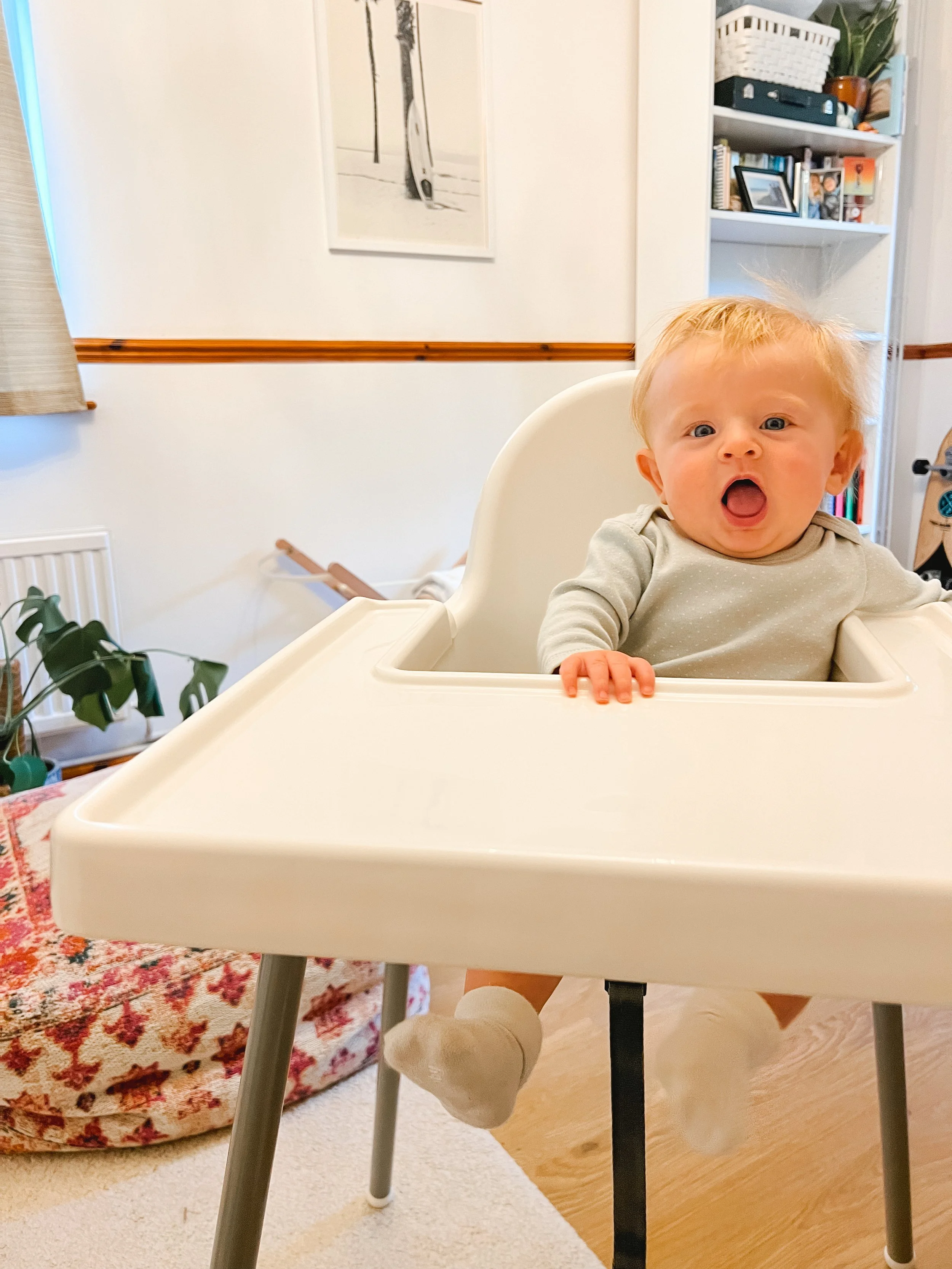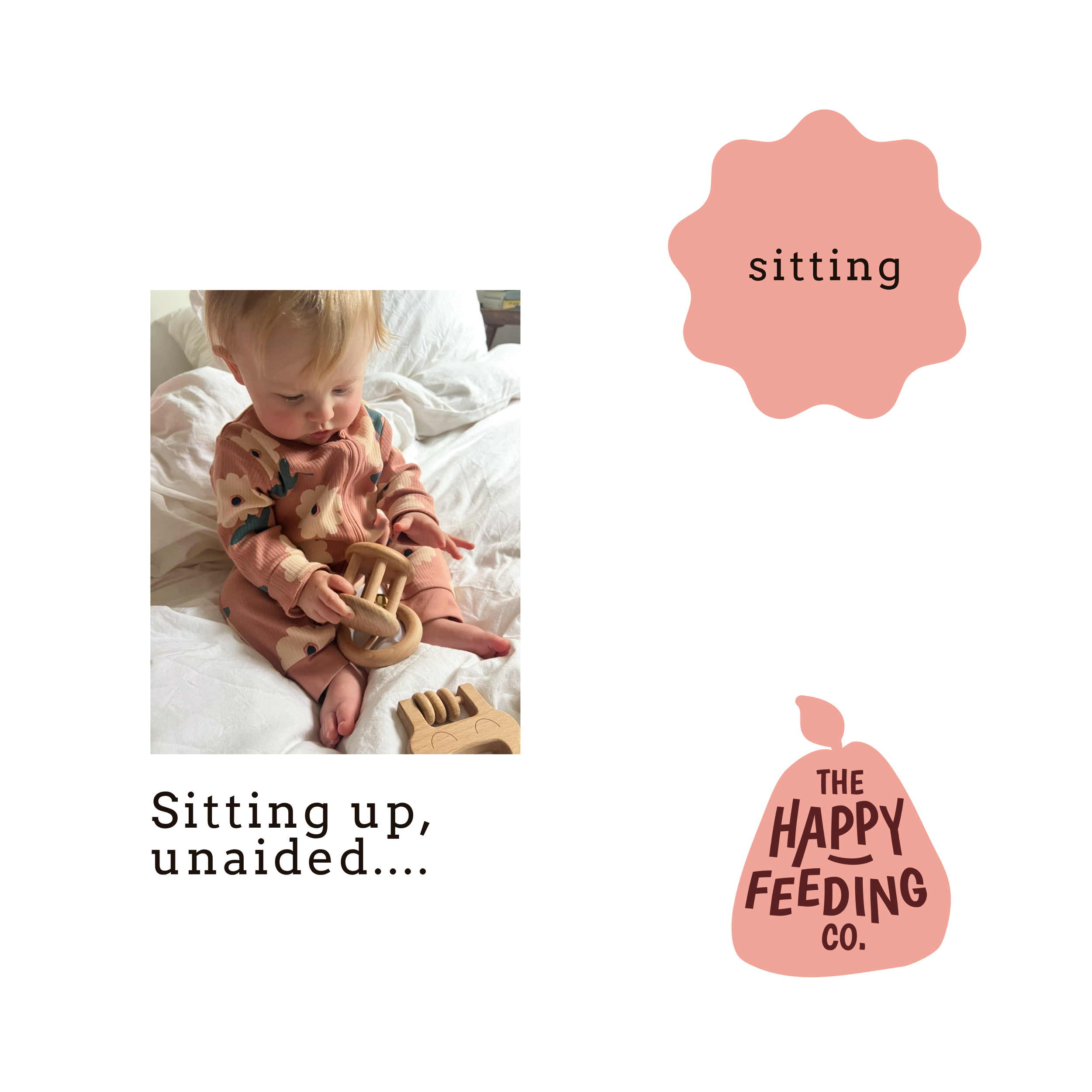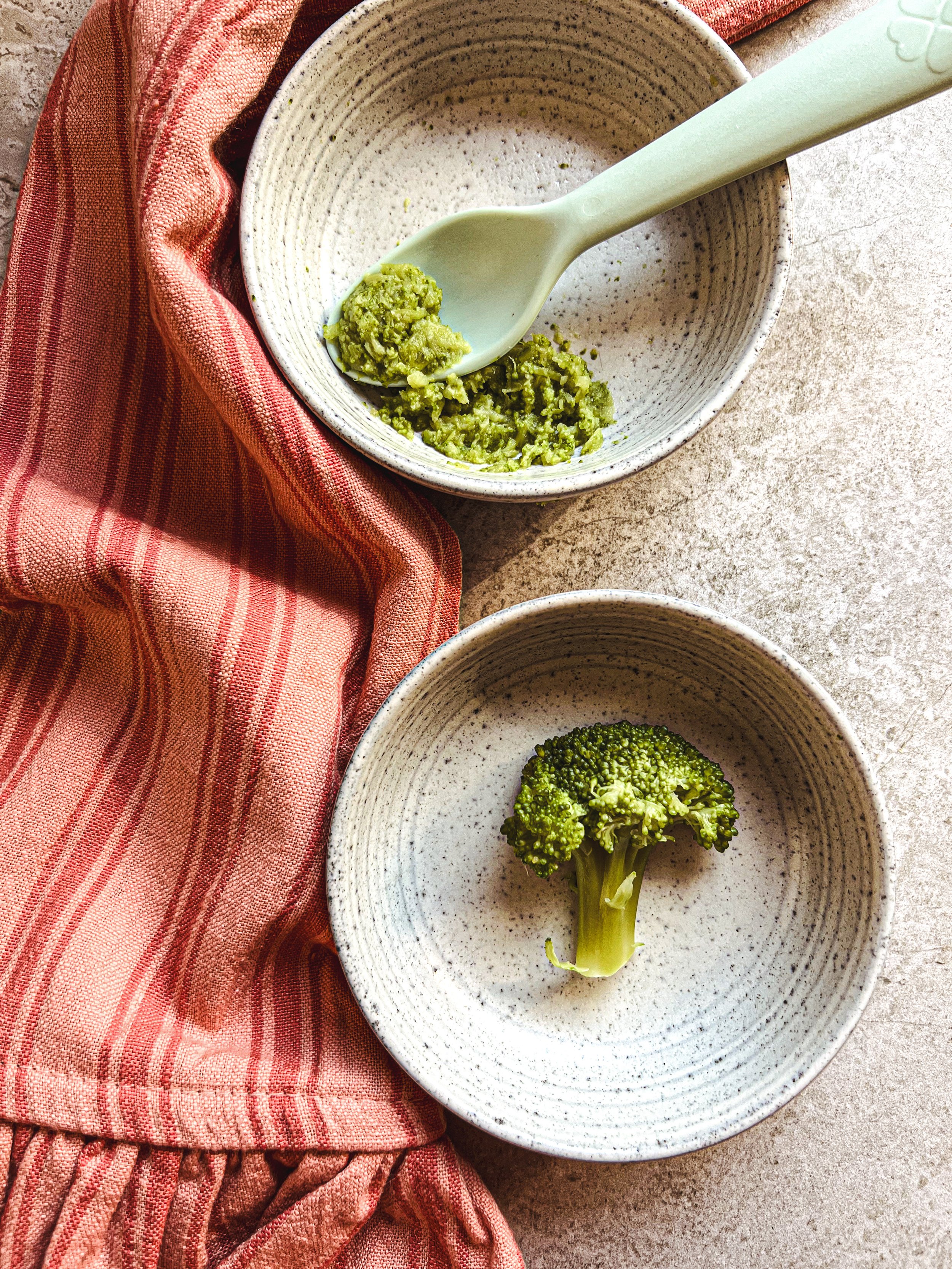When is my baby ready for solids? A guide from a baby nutritionist
Getting ready to introduce solids is a huge milestone in your babies life. Understanding when your baby is developmentally ready to start some solid food is key to getting the process off to the right start. Read on to learn all about when it is recommended to start feeding your baby their first foods.
So, when do babies start solids?
This is something that has been heavily studied in the nutrition world and the guidance has changed significantly over the past 20 or so years. But currently it is agreed - that waiting until around 6 months is best for most babies
These are current UK recommendations around when to introduce solids to your baby:
Exclusive breastfeeding for 6 months is the current recommendation (but remember, this is usually not possible/practical for many families)
Start solids around 6 months of age when baby shows all the developemental signs of readiness (more on this in a minute)
This advice was updated in 2001, when both the World Health Organization and the Department of Health shifted away from the older recommendation of starting solids around 4 months. The change was based on strong scientific evidence showing that exclusive breastfeeding for the first 6 months is nutritionally adequate and supports healthy development in most babies.
Despite this, there’s still a lot of confusion around when to begin solids. Many parents continue to hear advice from older generations- grandparents, friends, even some professionals- who were guided by the previous recommendations to start weaning at 4 months.
This is not helped by mis-information provided on baby food products where you will see all manner of baby snacks and pouches targeted at 4 month old babies which is ultra confusing and does not align with current public health guidance and can be misleading for families
So, why do we wait 6 months?
At approximately six months, most babies have developed the necessary motor skills and digestive maturity to handle solid foods safely. Introducing solids too early can increase choking risk and may not provide the nutritional benefits intended.
Exclusive breastfeeding for six months has been associated with a lower risk of gastrointestinal and respiratory infections. Additionally, longer durations of breastfeeding have been linked to better cognitive outcomes and a lower risk of certain developmental disorders
Developmental signs your baby is ready for solids
So, HOW ON EARTH do we know when a baby is ready for solids? What are the signs my baby is ready to eat food?
Well there are a few key things we look for to decide if a baby is ready for their first foods. Some of these signs show earlier than others, but generally, a baby is ready to start solids when they:
Can sit up with minimal support: Being able to sit up independently is a super important skill as it means babies have the core strength needed to hold a good posture and therefore eat and swallow safely
Have good head and neck control: They can hold their head steady while seated.
Show interest in food: They watch you eat, reach out for food, or open their mouth when food approaches: watch out for your baby showing an interest in your food - they might stare you down as you bite into your dinner
Can pick up objects and bring them to their mouth: This hand-to-mouth coordination is crucial for self-feeding ability and baby-led style weaning
Have lost the tongue-thrust reflex: They no longer automatically push solids out of their mouth with their tongue (although this is considered an out-dated sign of readiness that is not a true reflection of a baby being developmentally ready for solids)
Timing: These signs typically emerge around six months but can vary slightly from one baby to another.
Have a look at the pictures of these babies demonstrating the skills needed to start solids:
What if my baby isn't ready at 6 months?
If your baby hasn't reached these milestones by six months, it's okay to wait a bit longer. Continue offering breast milk or formula, and consult with your healthcare provider if you have concerns. Encouraging tummy time and other activities can help develop the necessary motor skills for eating solids.
Pictured- Broccoli puree and steamed broccoli florets as a first food for baby!
Introducing common food allergens
In some cases for babies at high risk of food allergies (e.g. those with severe eczema, an existing food allergy or a family history of allergies), introducing common allergens like peanuts and eggs early may help reduce the risk of developing food allergies. However, this should be done under the guidance of a healthcare professional.
It is worth noting that the skill of picking up food and bringing it to the mouth is one that develops later in babies – this is why ‘baby-led’ (self-feeding) style of weaning usually starts later at around 6 months or so. If for any reason early weaning (before 6 months) is recommended then some element of spoon feeding may be required to achieve this goal (but please get 1:1 support with this as this is NOT suitable or necessary for all babies)
Is a 4 month old ready for solids?
A four month old baby is not ready for solid food, they are highly unlikely to be able to sit up and hold the head steady and sit in a safe position for eating which reduces choking risk. They are also unlikely to be able to reach out to grab food and bring food to the mouth to eat!
A note on baby-led weaning
‘Baby-led’ weaning is when babies are encouraged to explore food independently from the start by picking it up with their hands and self-feeding, rather than by being spoon-fed by someone else.
You may be wondering: What is the earliest you can start BLW? Can I start baby-led weaning at 4 months?
And the answer is: No.
The skills required for a baby to self-feed safely (being able to look at food, pick it up and put it in their mouth) often show later than those required for babies to be spoon fed puree/mashed food
If you decide to wean earlier than 6 some foods will require adapting to make them suitable for your baby (blending or mashing) and baby-led weaning is NOT SUITABLE
Pictured- Courgette fingers for baby-led weaning!
Final thoughts from me
I hope you found this useful to read before starting your weaning journey with your little one!
Starting solids is an exciting chapter in your baby's development. By waiting until they're truly ready, you set the stage for a positive and healthy eating experience. Remember, every baby is different, and it's okay to follow their unique timeline.
Explore the weaning, first foods + weaning recipes sections of the blog or my 30-days of weaning series on instagram to get everything you need to feel confident starting solids with your little one and nourish them throughout the first year and beyond!
If you want more support, I run an online clinic where we can chat all things baby nutrition and starting solids, book a 1:1 with me here
C x








